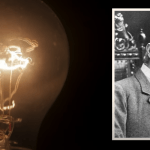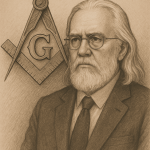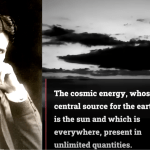Alan Watts, an influential philosopher, and writer, was a guiding light for those who sought truths about life. His ‘Monumental Speech’ on YouTube is a masterful summary of his thoughts on society and individual experiences.
In his ‘Monumental Speech’, Watts dived into the human experience, our relationship with work, societal systems, and being true to ourselves. He stressed personal freedom, motivation from within, and finding purpose in work. His words strike a chord with anyone grappling with the pressures of modern capitalism.
Watts’ unique view of the business world was refreshing. He critiqued the way society treats work as a duty and play as a leisure activity. He wondered aloud, “Why can’t we get paid for playing?” His disapproval of traditional jobs and standard business practices aimed to suggest an alternative way of living, where work is driven by our passions and becomes indistinguishable from play.
Using real-life scenarios, Watts pointed out a societal problem: we give too much importance to paperwork and bureaucracy. He made us think about the exhausting rules we follow. He questioned if recording what we do is more important than the actual doing. For instance, a doctor spending more time on paperwork than treating patients indicates a system that’s off track.
Another profound point Watts raised was about the influence of media on our self-perception. Many of us gauge our worth by the recognition we get in newspapers or social media. Watts encouraged us to separate our existence and self-value from these unstable external factors.
Watts also delved into our desires. He emphasized the importance of comprehending the potential consequences of what we want. This ancient wisdom of caution with our desires encourages self-examination. This can lead to a more aware and content life, free from unexpected setbacks.
Watts’ critique of wars waged for abstract ideas feels more relevant today. He urged us to acknowledge the inherent ‘irreducible rascality’ in all of us, which makes us human and fosters compromise, empathy, and peace.
His critique didn’t stop there; it extended to the legal system. Watts mourned the loss of human intuition and common sense due to the dominance of law. He proposed that businesses should operate more like organisms than organizations, focusing on people. Watts asked us to rely more on trust than law, admitting it’s riskier but crucial for a well-functioning community.
In short, Watts’ ‘Monumental Speech’ was a call for authenticity, intuition, and awareness in our work, desires, and relationships. His philosophy, deeply understanding the human condition, serves as a roadmap for those navigating the complexities of life.
As someone aware of these truths, I value Watts’ vision of blending work and play, of creating a society that values inherent human qualities over blind obedience to systems. His unique view of life challenges and enlightens, and his wisdom is timeless and universal. ‘Monumental Speech’ is a must-watch for those searching for truth and wisdom. The influence of his message could lead to a transformative shift in our collective mindset.


















